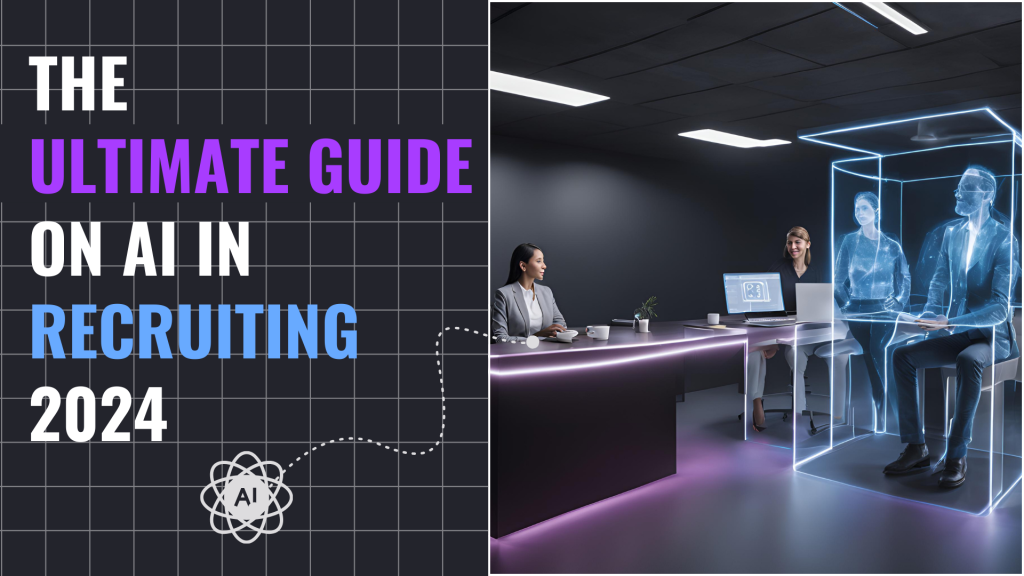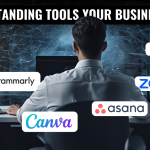Learn about the the importance and utilization of AI in the recruiting process in 2024. Know the key benefits of AI recruiting, find out the AI tools and technologies good for use for recruitment, learn the process of implementing AI in recruitment, and a lot more!
Introduction
The hiring process is among the most sensitive business processes across organizations. Certainly, thanks to technology’s development, specific changes in the recruitment process are observable and have positively impacted AI technology, the candidates, and the employers. When planning for the future, specifically, 2024, the information regarding the utilization of artificial intelligence in the selection process is the primary key for companies that want to be on par with their competitors and staff their organizations with the best employees. This guide will assist you on how to consider AI in recruiting from its advantages, the technologies being utilized, ways to apply its use, the possible drawbacks that may be encountered, and the possible developments that may occur shortly.
Understanding AI in Recruiting
AI in recruiting entails the application of artificial intelligence approaches or mechanisms in improving and automating several facets of recruiting. Right from the enlistment of candidates up to the stage of screening the CVs and even conducting the first interview, AI is capable of undertaking many tasks that earlier were the source of work for the human personnel of the company. This not only saves time but also has other benefits to the efficiency of the process of recruitment.
Key Benefits of AI in Recruiting
Efficiency and Speed: AI can pre-screen resumes and schedule interviews which are time-consuming for human resource personnel. This cuts down the amount of time taken to place a candidate hence enabling the recruiter to engage in more effective activities.
Enhanced Candidate Experience: The online chatbots created by AI can freely interact with candidates, respond to their concerns, and inform them at the various stages of the hiring process. This in a nutshell makes the candidate experience positive and quite engaging.
Improved Quality of Hire: Computer-based tools can be programmed to sort through large data sets to find the most suitable individuals to fill the positions. This also entails assessing talents, past work, and demeanor, thus improving on choices of employees.
Bias Reduction: One of the roles of AI is that it can prevent the so-called ‘hidden bias’ in the process of recruitment in that it is more based on mathematical algorithms than on the opinion of managers. It helps in the case of discrimination and prejudices practised in the organization because it focuses on the differences.
AI Tools and Technologies in Recruiting
It is now possible to identify several AI solutions that influence the field of recruitment. Here are some of the most popular ones:
Resume Screening Software: These tools are designed to be used for resume screening where they can look through resumes and filter the results by keywords, skills, and experience. This assists in eliminating the other less suitable candidates within the shortest time possible.
Chatbots: Through AI-defined chatbots, the candidates can directly talk with the concerned authorities, get their queries resolved, and even schedule interviews. They are advantageous in that they are progressive and communicative, which aids in increasing candidate interest.
Predictive Analytics: Such tools rely on historical data and machine learning techniques to forecast the organization’s future requirements and select the most appropriate candidates from other databases. This makes it possible to go for talent ahead of time.
Video Interviewing Platforms: Some recruiting platforms allow using artificial intelligence in the assessment of such criteria as a candidate’s answers to questions, facial expressions, and even intonation. This introduces another form of appraisal into the stringency of the recruitment process.
Implementing AI in Your Recruitment Process
To successfully integrate AI into your recruitment process, follow these steps:
Define Your Goals: It is imperative to lay down specific and measurable goals that you wish to achieve with the help of artificial intelligence in your recruitment. This may, for instance, involve cutting down the time taken to recruit the candidates, increasing the candidate’s satisfaction levels, or raising the quality of the employees hired.
Choose the Right Tools: Choose AI tools for recruitment that fit your objectives and company requirements in the best ways possible. You should discover more about the several possibilities with regards to using the app and using the following features; simplicity, compatibility, and cost.
Integrate with Existing Systems: Make sure that the selected AI tools can fit easily into the current HR infrastructure. This will help in transition & transforming hr and the overall benefits of AI will be achieved to the fullest.
Train Your Team: The education and training of your recruitment team are needed to equip them to apply the AI tools efficiently. This also entails comprehending AI analysis of results and making decisions based on the results derived from an analysis.
Challenges and Considerations
While AI offers numerous benefits, there are also some challenges and considerations to keep in mind:
Data Privacy: Ensure that when using the AI tools you are in the right adherence to rules on data privacy like the GDPR. That is why important measures have been implemented, such as getting consent from candidates and protecting their data.
Bias in AI Algorithms: It is also relevant to note that you should have a schedule of polling your AI tools with a view of checking for bias issues. The problem that AI algorithms can reproduce biases inherent in the training data can be an issue, so it must be observed.
Human Touch: Now, of course, AI is great and allows many factors of the recruitment process to be fully automated but you do not want to lose that personal touch. Cognitive and individual approaches are still important in the procurement of the candidates’ interactions and the ultimate hiring decisions.
Future of AI in recruiting
Recruiting has started to be revolutionized by AI to some extent, but the progression of technology looks to soon bring even more change to the process. Here are some key trends and developments expected to shape the future of AI in recruiting:
Hyper-Personalized Candidate Experiences
Over time, the processes of recruitment will become hyper-personalized at every step due to AI. Self-learning mechanisms can ensure that each interaction corresponds to the candidate’s needs, experience, and goals. This is done through personalization of jobs to be offered, own messaging, and even one-on-one interview questions. Employers gain from this level of personalization in the sense that it also boosts the employer branding front whilst at the same time ensuring that the candidates are treated well and offered the best experiences.
Advanced Predictive Analytics
Getting in deeper, AI’s prediction abilities will improve, creating more accurate data-driven quick decisions for the recruiters. Screening techniques will help locate the specific talents that will be useful for the long term in the organization by analyzing patterns and data. Fluctuations in the local economy will create lower turnover rates and enhance the quality of the people hired. In the same way, hiring needs will also be foreseen by AI, depending on the circumstances, making it possible to have strategic talent acquisition.
AI-Driven Diversity and Inclusion
Another benefit of AI usage in the hiring process is its neutrality, which means that artificial intelligence does not have any prejudice about the candidates. For the next generations of AI systems, especially as they are going to be trained on much more balanced datasets and will be running constant bias checks, the problem is going to be even less of an issue. These systems will assist organizations in the recruitment of a diverse pool of employees since the selection process will not be influenced by personal bias.
Integration with Agile Methodologies
The application of AI together with agile system development approaches will improve the adaptability of the recruitment procedures. Recruitment practices that are iterative and thus interactive will be integrated with Agile frameworks such as Scrum, or will adopt the Kanban system about AI. This synergy will enable the business to adapt to change quicker since the internal and peripheral environment will be responding to market changes quickly.
Frequently Asked Questions
Q1: What opportunities does AI hold for the candidate experience in the future?
Answer: Applying Artificial Intelligence to the process of job search will make it even more appealing due to AI’s ability to deliver highly customized recommendations to potential employees and balanced messages.
Q2: Where do you see the perspective of predictive analytics for recruitment in the year 2024?
Answer: An increase in the use of predictive analytics will mean that hiring requirements and the potential of the candidates will be predicted accurately thus enabling organizations to hire informally and therefore more effectively.
Q3: How can AI support the themes of equal opportunities in the context of employment?
Answer: AI can minimize inherent bias in the hiring process due to the ability to base decisions on a script and the constant checking of loopholes in fairness.
Conclusion
AI in recruiting is not just a trend but a revolution in the field of recruiting talents in organizations across the globe. This paper also generally established that these AI applications can help recruiters improve efficiency, flexibility, qualitative outcomes, and decision-making. For more years, until 2024, it will be crucial for recruiting organizations to keep abreast with the modern trends in AI tools.

Sagar is an HR Agile Coach & Business Agility Consultant with over a decade of experience in HR functions at small and large multinational corporations. He has been running an HR consulting firm for the last few years, focusing on leveraging agile methods to increase business efficiency.
Sagar is an authorized instructor for ICAgile Agility in HR (ICP-AHR) and Business Agility Foundations (ICP – BAF) training courses. He has considerable experience in coaching and training on applying agile practices for his clients, primarily HR departments. He also provides consulting for HR for Agile and Agile for HR transformation to corporates.







